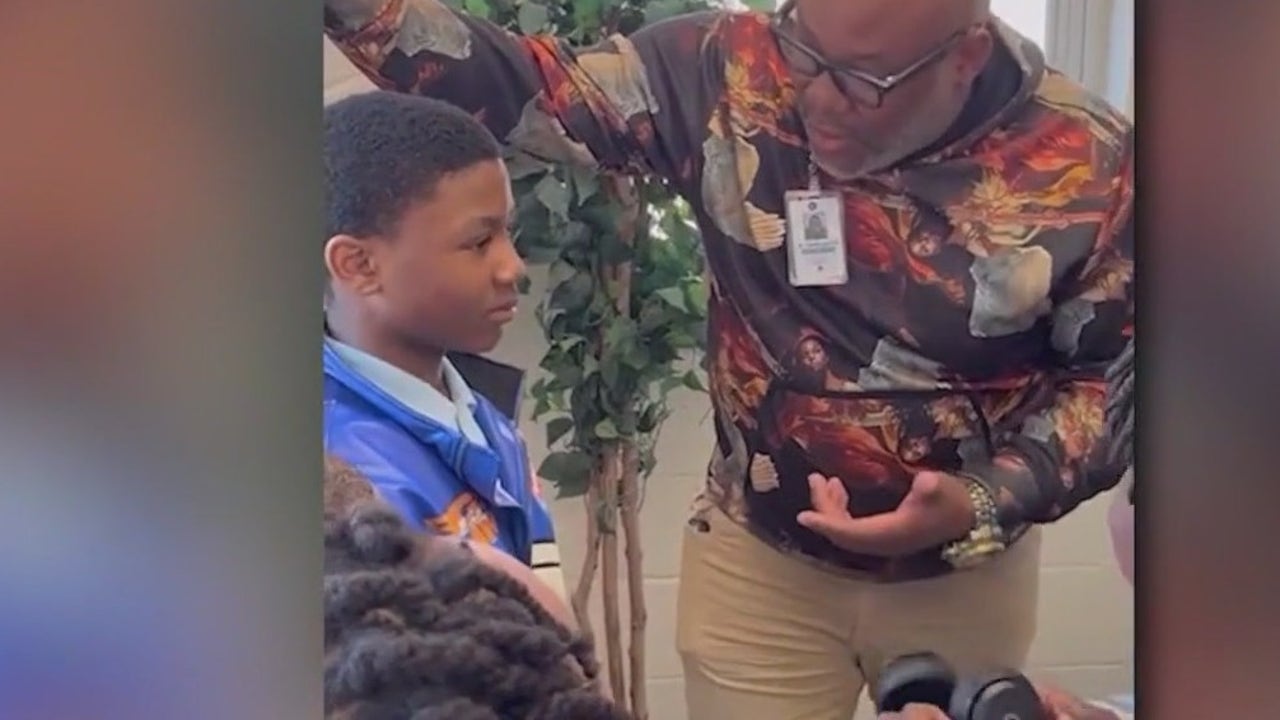Education
Opinion | The Most Common Graduation Advice Tends to Backfire

As American high school and college students graduate and embark on the next phases of their lives, one piece of advice they will undoubtedly receive is to follow their passions or some equivalent sentiment. It seems like fine guidance, however clichéd: Do something that feels true to yourself rather than conform to expectations.
But following your passions often turns out to be a bad idea. New research that we and our colleagues conducted found that when asked to identify their passions, women and men tend to cite stereotypically feminine and masculine interests and behavior. Women are more likely to say they want to make art or help people, for instance, while men are more likely to say they want to do science or play sports.
In other words, when asked to identify their passions, people seem to do precisely what following their passions is supposed to discourage: They conform to societal expectations. This finding is especially troubling for anyone concerned about gender disparities in fields like computer science and engineering, in which women are significantly underrepresented.
In two surveys — one of more than 500 undergraduates nationally and the other of about 150 undergraduates at the University of Washington who had recently declared their majors — we found that “follow your passions” was the most common advice American college students heard and used when selecting their majors.
Then we asked hundreds of undergraduate students which majors and careers they would choose if they followed their passions and which majors and careers they would choose if they prioritized salary and job security. We found that when it came to pursuing male-dominated fields like computer science and engineering, gender gaps were greater when students chose to follow their passions, with men disproportionately choosing those fields. We also found that gender gaps in selecting future occupations were smaller when we asked people of both genders to prioritize nurturing and emotionally supporting other people.
That is, if you encourage women and men to follow their passions in selecting a major or career, there is a big gender gap. If you encourage them to make money, there is less of a gender gap, with more women skewing toward traditionally masculine fields. And if you encourage them to nurture and support other people, there is also less of a gender gap, with more men skewing toward traditionally feminine fields.
Are we suggesting that women shouldn’t pursue their passions and should enter fields that they don’t really care about just to close gender gaps? Of course not. For one thing, traditionally feminine work is important, and society needs people who are passionate about it and want to pursue it — including men.
But what strikes us, based on this and other research, is that for many young people, passions seem to be based in large part on internalized societal expectations about what is appropriate for their gender rather than complete and accurate information about what, say, studying computer science is really like.
Consider that most U.S. high school students do not take a single computer science, engineering or physics class. And girls are even less likely to take these classes than boys. That means that many girls who forsake these courses are doing so without ever trying them. Even when girls take these classes, research shows that they often encounter negative stereotypes about their abilities and interests — whereas giving girls positive experiences in these fields can increase their interest.
Our point is that the passions that young people are supposed to be following seem highly malleable and susceptible to influence. In several experiments that one of us (Dr. Cheryan) conducted, high school girls and college women expressed less interest in enrolling in a computer science class when the classroom was furnished with “Star Trek” posters, video games and other objects stereotypically associated with men than when the same classroom was decorated with nature posters, plants and other more gender-neutral objects.
If the presence or absence of a sci-fi poster can change your interest in a field of study, you’re probably not thinking about the field itself; you’re probably thinking about whether the culture of the field is one that you could fit into and be successful in.
In many non-Western countries, students are not encouraged to view academic choice as a form of self-expression. The results can be striking: In countries such as Malaysia and Kuwait, the gender disparities in computer science and engineering degrees are much smaller than they are in the United States. Students in those countries typically pick their majors for other reasons — income, job security, family obligation.
The “follow your passions” advice may appear to ask people what they want to do with their lives. But too often what they’re being asked to do is let their gender limit their choices. So let’s change what we say to high school and college graduates. Sure, you can follow your passions. But also keep an open mind and try things you may have ruled out without even realizing why. There may be more to be passionate about than you realize.

Education
Video: Opinion | We Study Fascism, and We’re Leaving the U.S.

I’m a historian of totalitarianism. I look at fascist rhetoric. I’ve been thinking about the sources of the worst kinds of history for a quarter of a century. “Experts say the constitutional crisis is here now.” ”The Trump administration deporting hundreds of men without a trial.” “A massive purge at the F.B.I.” “To make people afraid of speaking out against him.” I’m leaving to the University of Toronto because I want to do my work without the fear that I will be punished for my words. The lesson of 1933 is you get out sooner rather than later. I’ve spent a lot of time in the last decade trying to prepare people if Trump were elected once, let alone twice. “Look what happened. Is this crazy?” [CHEERING] I did not flee Trump. But if people are going to leave the United States or leave American universities, there are reasons for that. One thing you can definitely learn from Russians — — is that it’s essential to set up centers of resistance in places of relative safety. We want to make sure that if there is a political crisis in the U.S., that Americans are organized. ”We’ve just gotten started. You haven’t even seen anything yet. It’s all just kicking in.” My colleagues and friends, they were walking around and saying, “We have checks and balances. So let’s inhale, checks and balances, exhale, checks and balances.” And I thought, my God, we’re like people on the Titanic saying our ship can’t sink. We’ve got the best ship. We’ve got the strongest ship. We’ve got the biggest ship. Our ship can’t sink. And what you know as a historian is that there is no such thing as a ship that can’t sink. “The golden age of America has only just begun.” America has long had an exceptionalist narrative — fascism can happen elsewhere, but not here. But talking about American exceptionalism is basically a way to get people to fall into line. If you think that there’s this thing out there called America and it’s exceptional, that means that you don’t have to do anything. Whatever is happening, it must be freedom. And so then what your definition of freedom is just gets narrowed and narrowed and narrowed and narrowed, and soon, you’re using the word freedom — what you’re talking about is authoritarianism. Toni Morrison warned us: “The descent into a final solution is not a jump. It’s one step. And then another. And then another.” We are seeing those steps accelerated right now. There are some words in Russian in particular that I feel help us to understand what’s happening in the United States because we now have those phenomena. “Proizvol”: It’s the idea that the powers that be can do anything they want to and you have no recourse. This not knowing who is next creates a state of paralysis in society. The Tufts student whose visa was removed because she co-authored an article in the Tufts student newspaper. [DESPERATE YELLING] I thought, what would I do if guys in masks tried to grab my student? Would I scream? Would I run away? Would I try to pull the mask off? Would I try to videotape the scene? Would I try to pull the guys off of her? Maybe I would get scared and run away. The truth is, I don’t know. Not knowing terrified me. It’s a deliberate act of terror. It’s not necessary. It’s just being done to create a spirit of us and them. “Prodazhnost”: It’s a word in Russian for corruption, but it’s larger than corruption. It refers to a kind of existential state in which not only everything but everyone can be bought or sold. “Critics are calling this a quid pro quo deal between Adams and President Trump.” “I’m committed to buying and owning Gaza.” “He made $2.5 billion today, and he made $900 million.” There’s an expression in Polish: “I found myself at the very bottom, and then I heard knocking from below.” In Russian, that gets abbreviated to “There is no bottom.” “We cannot allow a handful of communist radical left judges to obstruct the enforcement of our laws.” What starts to matter is not what is concealed but what has been normalized. There is no limit to the depravity — ”President Trump did not rule out the possibility of a third term.” — and the sadism — “The White House released this video titled ASMR Illegal Alien Deportation Flight.” — and the cruelty that we are watching now play out in real time. “This facility is one of the tools in our tool kit that we will use.” You have to continually ask yourself the question, “Is this OK? Is there a line I wouldn’t cross? Is there something I would not do?” People say, oh, the Democrats should be doing more. They should be fixing things. But if you want the Democrats to do things, you have to create the platform for them. You have to create the spectacle, the pageantry, the positive energy, the physical place where they can come to you. Poland recently went through a shift towards authoritarianism. Unlike in Russia, unlike in Hungary, the media remained a place, in Poland, where you could criticize the regime. And as a result, democracy returned. The moral of Poland is that our democratic institutions — the media, the university, and the courts — are essential. You know you’re living in a fascist society when you’re constantly going over in your head the reasons why you’re safe. What we want is a country where none of us have to feel that way.
Education
A $5 Billion Federal School Voucher Proposal Advances in Congress

Advocates for private-school choice celebrated this week as a federal schools voucher bill moved closer to becoming law, a major milestone that eluded their movement during President Trump’s first term.
The House Republican budget proposal that advanced on Monday would devote $5 billion to federal vouchers for private-school tuition, home-schooling materials and for-profit virtual learning.
The program in the budget bill could bring vouchers to all 50 states for the first time, including Democratic-leaning ones that have long rejected the idea.
Supporters hailed the proposal as “historic” and a “huge win,” but some cautioned that there was still much legislative haggling ahead.
“Ultimately, every child, especially from lower-income families, should have access to the school of their choice, and this legislation is the only way to make that happen,” said Tommy Schultz, chief executive of the American Federation for Children, a private-school choice advocacy group.
Opponents of the proposal were stunned at its sweeping implications. While it is in line with President Trump’s agenda, it had been considered somewhat of a long shot to make it out of the House Ways and Means Committee, because of its cost.
The program is structured as a $5 billion tax credit, allowing donors to reduce their tax bill by $1 for every $1 they give to nonprofits that grant scholarships — up to 10 percent of the donor’s income.
The option to donate is expected to be popular with wealthy taxpayers.
The resulting scholarships could be worth $5,000 per child, reaching one million students. Any family who earns less than 300 percent of their area’s median income — which equals over $300,000 in some parts of the country — could use the funds, meaning a vast majority of families would be eligible.
The proposal could pass through the budget reconciliation process, and could become law with only 51 votes in a Senate where Republicans hold 53 seats.
In the wake of the Covid-19 pandemic, many Republican-led states passed new private-school choice laws, overcoming decades of resistance from teachers’ unions, Democrats and rural conservatives. Opponents have long argued that vouchers hurt traditional public schools, by decreasing enrollment and funding levels. And they have pointed out that lower-income neighborhoods and rural areas often have few private schools, making it difficult for many families to use vouchers.
“We are against giving people tax breaks to defund public schools,” said Randi Weingarten, president of the American Federation of Teachers, the nation’s second-largest education union.
She pointed out that while Mr. Trump and congressional Republicans have said they want to invest in work force education, artificial intelligence education and other priorities for student learning, they have consistently proposed cutting funding to public schools, which educate nearly 90 percent of American students.
“They don’t believe in public schooling,” she said. “What you’re seeing here is the fragmentation of American education.”
A boom in new private-education options, like virtual learning and microschools, has already changed the landscape — as has an influx of campaign spending from conservative donors, like the financier Jeff Yass, intended to build support for private-school choice.
Last month, Texas became the last major Republican-led state to pass such legislation. Advocates quickly shifted their focus to Congress and the opportunity to push a federal voucher bill.
Senator Bill Cassidy, Republican of Louisiana, is the sponsor of a Senate bill similar to the House proposal, and celebrated its inclusion in the budget package.
“Expanding President Trump’s tax cuts is about preserving the American dream,” he said in a written statement. “Giving parents the ability to choose the best education for their child makes the dream possible.”
But the proposal will still have to overcome opposition, on both the left and the right.
Advocates for public schools have said that the new generation of vouchers and education savings accounts, which are often available to relatively affluent families, are a subsidy to parents who can already afford private education.
In Florida, which has more children using vouchers than any other state in the nation, some public-school districts have experienced enrollment declines and are considering shutting down schools or cutting teaching positions.
Even some conservative parental-rights activists oppose the creation of a federal program, which they worry could create a regulatory pathway that could eventually be used to impose government requirements on home-schooling parents or private schools — for example, by requiring standardized testing, which is not mentioned in the current proposal.
“The federal government should extricate itself from K-12 education to the fullest extent possible,” said Christopher Rufo, a leading crusader against diversity programs in schools, and a supporter of school choice. “It’s best left to the states.”
Education
Harvard Letter Points to ‘Common Ground’ With Trump Administration

Harvard University struck a respectful but firm tone in a letter to the Trump administration on Monday, arguing that the university and the administration shared the same goals, though they differed in their approaches. It was latest move in an extraordinary back-and-forth between the school and the federal government in recent weeks.
The letter from Alan M. Garber, Harvard’s president, was sent a week after the Trump administration said it would stop giving Harvard any research grants.
Last month, the university took the government to court over what it has called unlawful intrusion into its operations. But on Monday, Dr. Garber’s tone was softer, saying he agreed with some of the Trump administration’s concerns about higher education, but that Harvard’s efforts to combat bigotry and foster an environment for free expression had been hurt by the government’s actions.
Dr. Garber said he embraced the goals of curbing antisemitism on campus; fostering more intellectual diversity, including welcoming conservative voices; and curtailing the use of race in admissions decisions.
Those goals “are undermined and threatened by the federal government’s overreach into the constitutional freedoms of private universities and its continuing disregard of Harvard’s compliance with the law,” Dr. Garber said in the letter to Linda McMahon, the secretary of education.
The university’s response came one week after Ms. McMahon wrote to Harvard to advise the university against applying for future grants, “since none will be provided.” That letter provoked new worries inside Harvard about the long-term consequences of its clash with the Trump administration.
“At its best, a university should fulfill the highest ideals of our nation, and enlighten the thousands of hopeful students who walk through its magnificent gates,” Ms. McMahon wrote. “But Harvard has betrayed its ideal.”
Rolling through a roster of conservative complaints about the school, Ms. McMahon fumed about the university’s “bloated bureaucracy,” its admissions policies, its international students, its embrace of some Democrats and even its mathematics curriculum.
Ms. McMahon referred to Harvard as “a publicly funded institution,” even though Harvard is private and the vast majority of its revenue does not come from the government. She suggested that the university rely more on its own funds, noting that Harvard’s endowment, valued at more than $53 billion, would give it a “head start.” (Much of Harvard’s endowment is tied up in restricted funds and cannot be repurposed at will.)
“Today’s letter,” Ms. McMahon wrote, “marks the end of new grants for the university.”
In Dr. Garber’s letter on Monday, he said that the university had created a strategy to combat antisemitism and other bigotry, and had invested in the academic study of Judaism and related fields. But he said the university would not “surrender its core, legally-protected principles out of fear of unfounded retaliation by the federal government.”
He denied Ms. McMahon’s assertion that Harvard was political.
“It is neither Republican nor Democratic,” he said of the university. “It is not an arm of any other political party or movement. Nor will it ever be. Harvard is a place to bring people of all backgrounds together to learn in an inclusive environment where ideas flourish regardless of whether they are deemed ‘conservative,’ ‘liberal,’ or something else.”
Although Harvard is the nation’s wealthiest university by far, officials there have warned that federal cuts could have devastating consequences on the campus and beyond. During Harvard’s 2024 fiscal year, the university received about $687 million from the federal government for research, a sum that accounted for about 11 percent of the university’s revenue.
The government can block the flow of federal money through a process called debarment. But the procedure is laborious, and the outcome may be appealed. Experts on government contracting said Ms. McMahon’s letter indicated that the administration had not followed the ordinary procedure to blacklist a recipient of federal funds.
Harvard officials are aware that, even if they challenge the administration’s tactics successfully in court, Mr. Trump’s government could still take other steps to choke off money that would be harder to fight.
The federal government often sets priorities for research that shape agencies’ day-to-day decisions about how and where federal dollars are spent. Some academics worry that the government might pivot away from fields of study in which Harvard has deep expertise, effectively shutting out the university’s researchers. Or the administration could simply assert that Harvard’s proposals were incompatible with the government’s needs.
Jessica Tillipman, an expert on government contracting law at George Washington University, said that it can be difficult to show that the government is using a back door to blacklist a grant recipient.
“You basically have to demonstrate and point to concrete evidence, not just a feeling,” she said.
Still, she said, Ms. McMahon’s letter could offer Harvard an opening to contest a protracted run of grant denials.
“It’s not as hard to prove,” Ms. Tillipman said, “when you have a giant letter that said, by the way, we aren’t giving you these things anymore.”
-

 Austin, TX5 days ago
Austin, TX5 days agoBest Austin Salads – 15 Food Places For Good Greens!
-

 Technology1 week ago
Technology1 week agoBe careful what you read about an Elden Ring movie
-

 Technology7 days ago
Technology7 days agoNetflix is removing Black Mirror: Bandersnatch
-

 Culture1 week ago
Culture1 week agoPulitzer Prizes 2025: A Guide to the Winning Books and Finalists
-

 Education1 week ago
Education1 week agoUniversity of Michigan President, Santa Ono, Set to Lead University of Florida
-

 World7 days ago
World7 days agoThe Take: Can India and Pakistan avoid a fourth war over Kashmir?
-

 News7 days ago
News7 days agoReincarnated by A.I., Arizona Man Forgives His Killer at Sentencing
-

 News1 week ago
News1 week agoJefferson Griffin Concedes Defeat in N.C. Supreme Court Race













